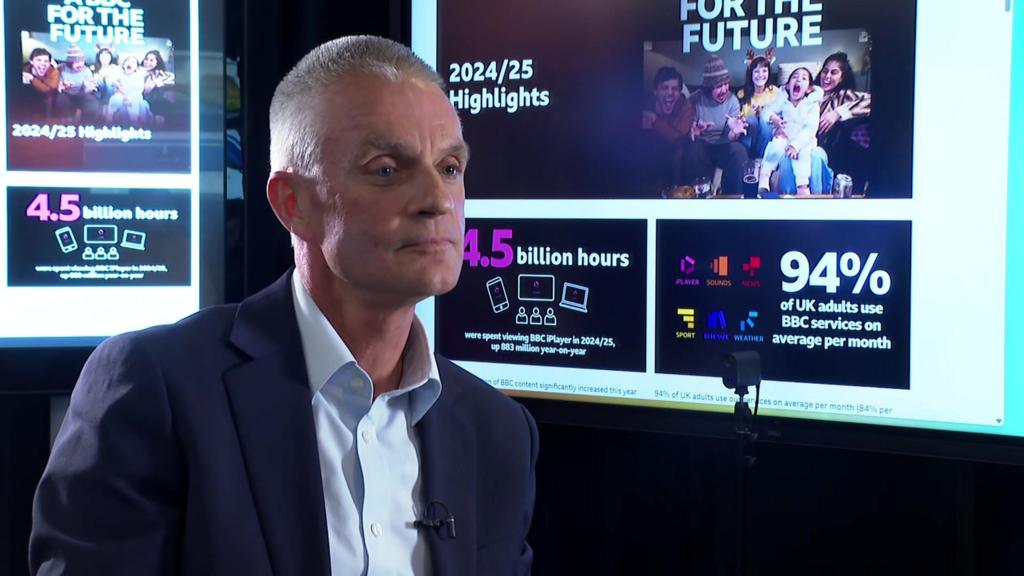The past weeks have placed significant pressure on BBC Director-General Tim Davie’s leadership. Today, that pressure was palpable.
Usually a polished performer, Mr. Davie appeared shaken. When asked if he had considered resigning in light of recent controversies, he stated he had not, but conceded it had been “a very, very tough time.”
Earlier, Mr. Davie launched the BBC’s annual report via Zoom, with journalists submitting questions remotely through a Q&A box. No cameras were permitted to record his responses.
Consideration was given to informing audiences that, on such a crucial day for the BBC, no senior figure from the corporation was being made available for on-camera interviews to address issues of public interest and relevance to licence fee payers.
Subsequently, Mr. Davie agreed to an in-person interview, conducted shortly after the announcement that the BBC and Banijay UK would not be renewing John Torode’s contract as MasterChef presenter.
It is customary to interview the Director-General during times of crisis at the BBC. Mr. Davie has consistently acknowledged the role of holding him accountable through rigorous questioning.
However, recent times have been particularly turbulent, even by BBC standards. Concerns surrounding a Gaza documentary featuring a child narrator later revealed to be the son of a Hamas official, the withdrawal of another film about doctors in Gaza, issues surrounding the BBC’s livestream of punk duo Bob Vylan’s set at Glastonbury, and the ongoing controversy surrounding MasterChef, all fall under his purview.
His leadership has faced scrutiny, notably from the Culture Secretary, who described the situation as a “series of catastrophic failures.”
The impact of these events was evident today. While Mr. Davie remained resolute in his defense of the BBC and his leadership, it was clear the past weeks have been personally challenging.
His typical interview style involves direct eye contact and carefully considered responses. However, on certain points today, he appeared less fluid. Some answers, particularly regarding his team’s “clear, strong decisions” in the face of challenges, seemed somewhat rehearsed.
Paradoxically, his diminished confidence lent him a more human quality. He openly acknowledged feeling pressure, a rare display of vulnerability.
This evokes the recent public discourse surrounding Rachel Reeves and her emotional response in Parliament. Regardless of one’s opinions on the decisions made by public servants, it raises questions about the personal toll of intense scrutiny.
Despite the challenges, Mr. Davie, often referred to as “Teflon Tim,” persists, albeit perhaps wounded.
The BBC has signaled a renewed focus on addressing workplace misconduct, a commitment made by Chairman Samir Shah following the Huw Edwards scandal.
Gregg Wallace and John Torode are no longer involved, three staff members have been asked to “step back” after Glastonbury, and several individuals have been dismissed following the BBC’s culture review.
The message is clear: Mr. Davie and his team are taking a firmer stance.
Match of the Day presenter Gary Lineker, who departed in May, remains the corporation’s highest earner.
Stephen Nolan was the seventh highest-paid on-air presenter in 2024-25, earning between £405,000 and £409,999.
Claudia Winkleman, Rylan Clark, and Michael McIntyre are among the personalities who will not be featured.
The licence fee generated £3.8 billion for the BBC in 2024-25, representing 65% of the corporation’s total income.
BBC culture reporter Noor Nanji examines the timeline of the allegations and subsequent developments.

